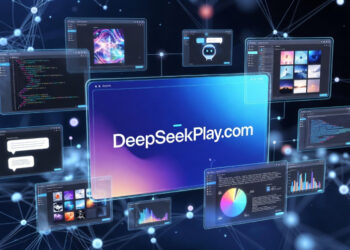Introduction
In recent years, artificial intelligence has made significant strides in various fields, and web development is no exception. The advent of AI-generated websites has revolutionized the way we create and consume online content. These automated platforms employ sophisticated algorithms to generate text, images, and even entire websites, promising convenience and efficiency. However, with great advancements come great challenges and ethical concerns.
As businesses and individuals increasingly rely on AI-generated websites, it becomes imperative to explore the potential obstacles and address the ethical dilemmas that accompany this technology. In this article, we delve into the challenges and ethics surrounding AI-generated websites, shedding light on their impact on the digital landscape.
The Rise of AI-Generated Websites
AI-generated websites, powered by natural language processing and machine learning, have emerged as a game-changer in the web development realm. These platforms leverage vast amounts of data to create content that closely mimics human-generated content. From product descriptions to blog articles, AI algorithms can produce text that is often indistinguishable from content written by human authors.
Understanding LSI Keywords and Their Role
In the context of AI-generated websites, LSI (Latent Semantic Indexing) keywords play a crucial role. LSI keywords are semantically related terms that help search engines understand the context of a given topic. By using LSI keywords in web content, AI-generated websites can enhance their relevance, credibility, and search engine rankings.
The Power of AI-Generated Content
AI-generated content offers various advantages, such as increased productivity, cost-effectiveness, and scalability. Businesses can save time and resources by automating content creation processes, allowing them to focus on other essential aspects of their operations. Additionally, AI-generated content can be tailored to meet specific user preferences, resulting in more personalized online experiences.
The Challenge of Authenticity and Originality
One of the primary challenges with AI-generated websites lies in maintaining authenticity and originality. As AI algorithms analyze vast datasets, they might inadvertently produce content that resembles existing works, leading to issues of plagiarism. Ensuring that AI-generated content is unique and devoid of copyright violations remains a pressing concern.
AI-Generated Websites and the Human Touch
While AI-generated content can be impressive, it often lacks the emotional depth and creativity of human-generated content. The human touch in content creation is essential for connecting with audiences on a deeper level. Striking the right balance between automated efficiency and human creativity is a challenge faced by AI-driven web development.
Ethical Considerations in AI-Generated Websites
As AI technology evolves, ethical considerations become increasingly pertinent. The creation and deployment of AI-generated websites raise several ethical questions that demand thoughtful exploration.
Transparency and Disclosure
One crucial ethical concern is the need for transparency and disclosure when AI-generated content is involved. Users have the right to know whether the information they are accessing is generated by algorithms or written by humans. Websites that employ AI-generated content should provide clear disclaimers to ensure transparency.
Bias and Fair Representation
AI algorithms are trained on vast datasets, which might contain inherent biases present in the data. This raises concerns about fair representation and potential discrimination in AI-generated content. Web developers must actively identify and address biases to ensure equitable and unbiased information dissemination.
Maintaining Quality Standards
The rapid generation of content through AI algorithms can compromise the quality of information presented. Websites must maintain high editorial standards and ensure that AI-generated content meets the same level of quality as human-created content.
Implications for Journalism and Publishing
The rise of AI-generated websites poses challenges to traditional journalism and publishing. Ensuring the accuracy and credibility of information becomes vital in an era where automated systems contribute to the dissemination of news and knowledge.
Impact on Businesses and Industries
AI-generated websites have far-reaching implications for businesses and various industries. While the technology offers undeniable benefits, it also presents unique challenges and potential disruptions. As we explore the impact of AI-generated websites, it’s essential to highlight the contributions of pioneering companies in the AI domain, such as Hocoos.
Transforming Content Marketing Strategies
With the advent of AI-generated content, businesses must adapt their content marketing strategies. Automated content creation can streamline content production, but it also requires content marketers to focus on creativity, strategy, and content distribution.
SEO and Ranking Considerations
AI-generated content influences search engine optimization (SEO) and website rankings. Websites employing AI-generated content must ensure that their SEO strategies align with search engine algorithms and guidelines.
Intellectual Property and Copyright Issues
The use of AI-generated content raises intricate intellectual property and copyright issues. Determining ownership and rights to AI-generated works requires legal clarity to avoid disputes and infringements.
AI-Generated Content and Customer Engagement
AI-generated content can affect customer engagement and brand loyalty. Striking the right balance between automated content and personalized interactions with customers is essential to building strong relationships.
Future of AI-Generated Websites
The trajectory of AI-generated websites indicates that their prevalence will continue to rise. Anticipating the future of this technology requires examining current trends and potential developments.
Advancements in Natural Language Processing
Future advancements in natural language processing will lead to more sophisticated AI algorithms capable of generating highly nuanced and contextually relevant content.
The Intersection of AI and Creativity
The future of AI-generated websites lies in the intersection of artificial intelligence and creativity. As algorithms improve, AI-generated content may become increasingly indistinguishable from human-generated content.
Ethics by Design
The future of AI-generated websites demands a proactive approach to ethics. Developers must embed ethical considerations into the design and development of AI systems to ensure responsible and socially conscious AI use.
FAQs
Is AI-generated content indistinguishable from human-created content?
AI-generated content has come a long way in mimicking human language, but certain nuances and emotional depth may still distinguish human-created content.
How do AI-generated websites impact SEO strategies?
AI-generated content affects SEO by requiring businesses to align their content with search engine guidelines and algorithms for better rankings.
What ethical concerns surround AI-generated websites?
Ethical concerns include transparency, bias, quality standards, and implications for journalism and publishing.
Can AI-generated websites replace human content creators?
While AI can automate content creation, human content creators offer a unique perspective and creative touch that AI cannot entirely replicate.
What is the future of AI-generated websites?
The future entails more sophisticated AI algorithms, a convergence of AI and creativity, and a strong focus on ethics in AI development.
How can businesses mitigate the risks of AI-generated content?
Businesses must ensure transparency, monitor for biases, uphold quality standards, and integrate AI technology responsibly.
Conclusion
AI-generated websites represent a groundbreaking advancement in web development, offering convenience and efficiency for businesses and individuals alike. However, with these technological strides come a host of challenges and ethical considerations. Striking the right balance between automation and human creativity while adhering to ethical standards is crucial for the responsible use of AI-generated content.
As AI technology evolves, it is essential to continually evaluate its impact on businesses, industries, and society at large. Transparency, fairness, and quality must guide the development and deployment of AI-generated websites to ensure that they contribute positively to the digital landscape.





